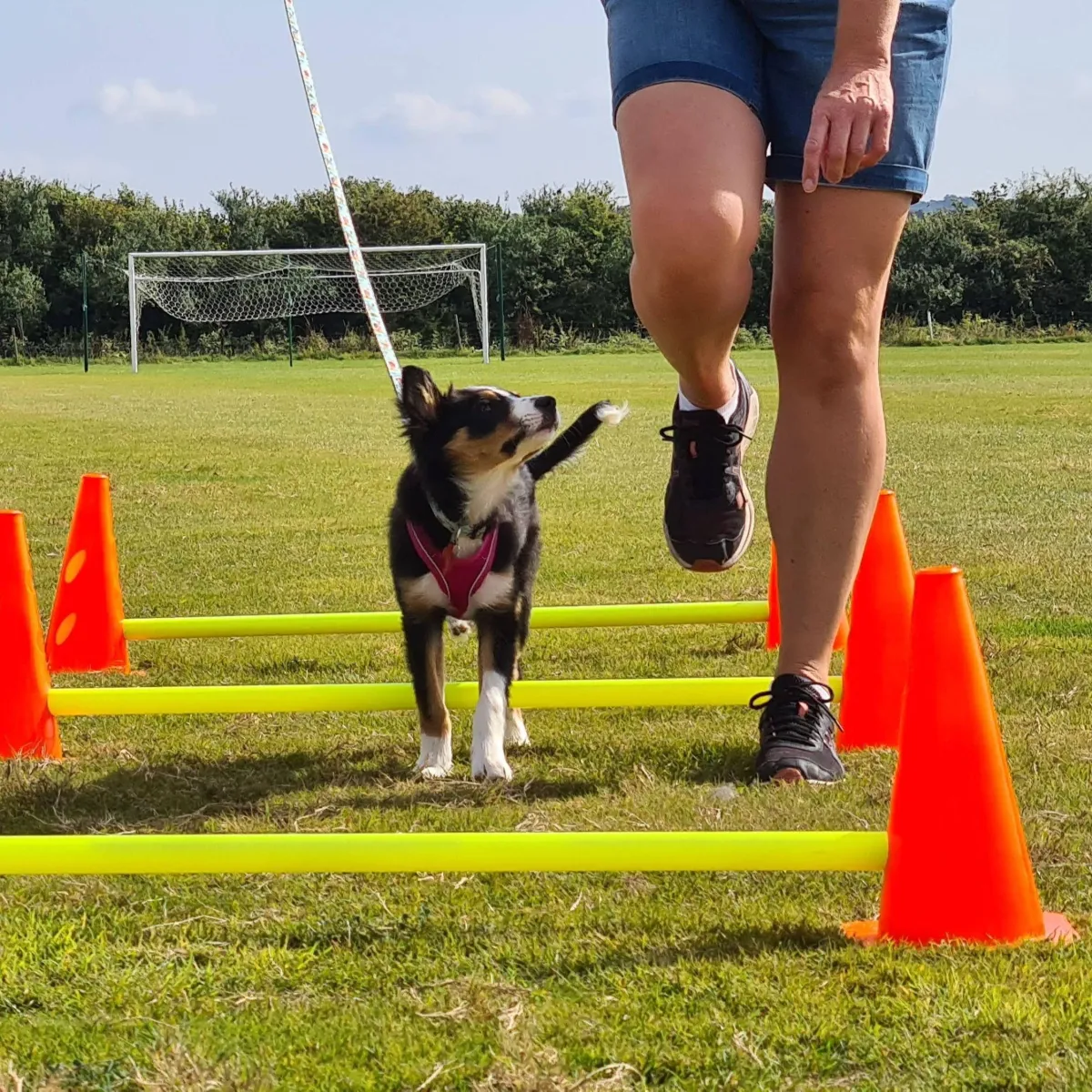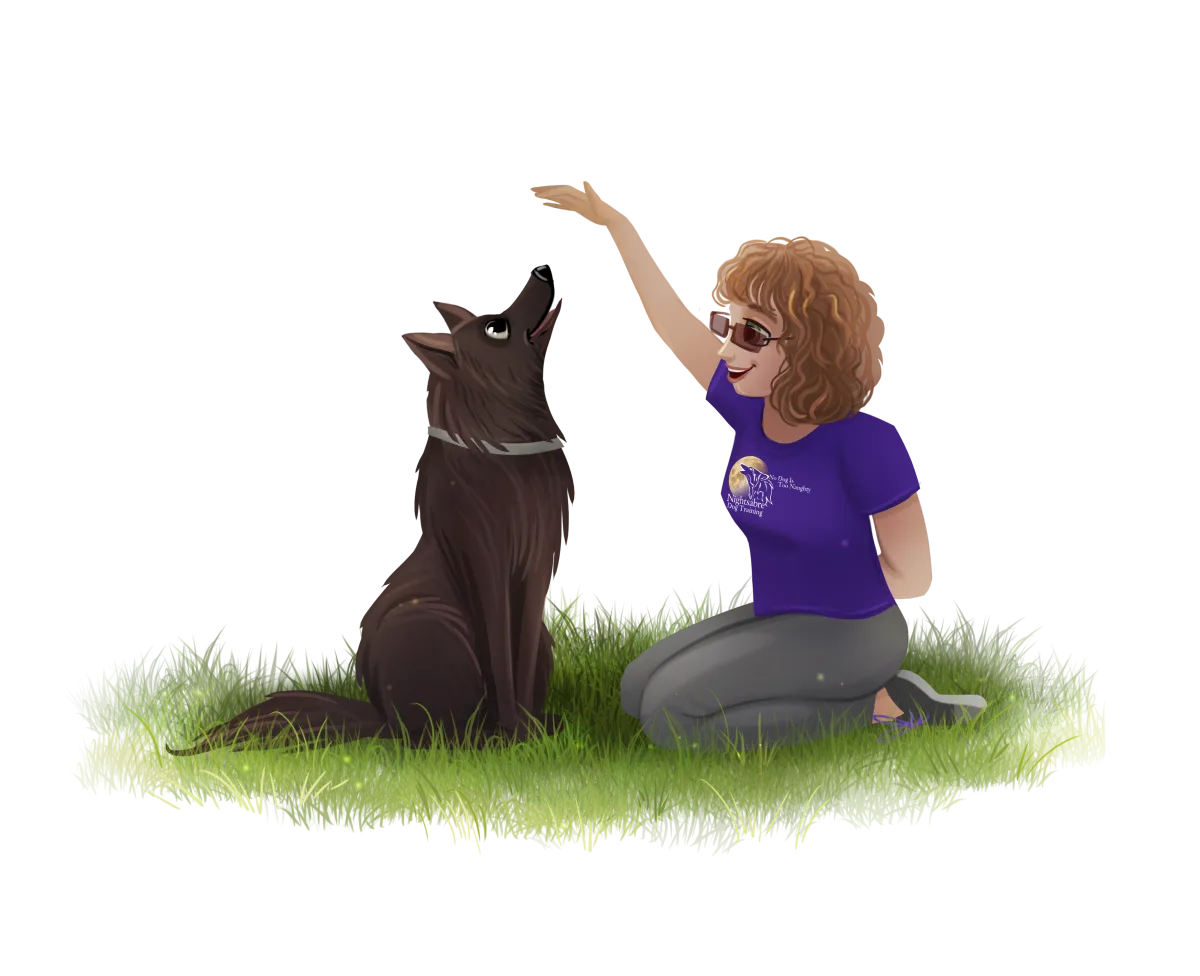The Fastest Way to Train a Dog: Positive Reinforcement Techniques for Success
Discover the fastest way to train your dog using positive reinforcement, with tips for obedience training stubborn breeds and using marker words effectively.
07888 870151

Discover the fastest way to train your dog using positive reinforcement, with tips for obedience training stubborn breeds and using marker words effectively.

Socialising your puppy is one of the most important steps in raising a well-rounded and confident pet. However, socialisation is often misunderstood; it’s not about letting your puppy play and interact with every dog they meet. Proper socialisation helps prevent behavioural issues, including frustration and reactivity that can arise when a puppy expects to play with every dog they see, and makes everyday experiences more enjoyable for both you and your new puppy.
Socialisation exposes your puppy to different people, animals, environments, and experiences and teaches them how to behave in those situations. It also provides your puppy with coping mechanisms when they encounter similar situations in the future. Socialisation is about future-proofing your puppy for experiences they may come across throughout their lifetime, reducing fear, anxiety, and aggression, and making them more adaptable and relaxed in various situations.
Reduces fear-based behaviours
Encourages positive interactions with other dogs and people
Helps prevent aggression and anxiety
Builds confidence in new environments
The ideal time to start socialising your dog is between 3 and 14 weeks of age, but it's never too late. This early period is crucial because puppies are most receptive to new experiences during this time. However, adult dogs can also learn to be comfortable in new situations with patience and positive reinforcement. Effective socialisation at any age helps dogs build resilience, cope with new environments, and handle future encounters with confidence.

1. Start Slowly
Introduce your puppy to new experiences gradually. Avoid overwhelming them with too many stimuli at once.
2. Use Positive Reinforcement
Reward your puppy with treats, praise, or toys during socialisation to create positive associations with new experiences.
3. Expose to Various Environments
Take your puppy to lots of different places like parks, busy streets, pet-friendly stores, and friend's houses to help them adapt to various settings.
4. Encourage Gentle Interactions
Allow your dog to interact with well-behaved dogs and friendly people to build positive social skills. This does not mean that your dog gets to run amok when interacting with other dogs; good socialisation also teaches your puppy to listen to you in these situations, reinforcing their focus on you while encouraging polite and calm behaviour around people and other dogs.
5. Monitor Body Language
Watch for signs of stress, such as tucked tails or flattened ears, and give your pup a break if they seem overwhelmed. Never force your pup to confront something they are uncomfortable with, instead give them the space and time to assess the situation and investigate. Allowing them to do this helps them overcome their fears and develop coping strategies for similar situations in the future.
Some dogs may be naturally shy or have had negative experiences in the past. Common challenges include fear of unfamiliar people or dogs, sensitivity to loud noises, and anxiety in new environments.
Overcoming these challenges involves starting with low-stress exposures, using high-value rewards for calm behaviour, and gradually increasing the complexity of social situations. It's also important to avoid forcing interactions and to give your dog time to adjust at their own pace. Patience, consistency, and celebrating small successes will help them build confidence over time.
Forcing interactions when your puppy is uncomfortable
Skipping socialisation during puppyhood
Neglecting to continue socialisation as your dog grows
Encouraging your puppy to play, chase, or play fight with every dog they meet
Socialisation is a vital part of dog training that ensures your pup grows up to be a friendly and adaptable companion. Start early, stay consistent, and make every new experience positive for your furry friend.
Looking for personalized training tips? Click here to book a free Discovery Call with me and create a tailored socialization plan for your dog today!

Fun | Focus | Play® by Nightsabre Dog Training
Natasja Lewis DipCAPBT | 07888 870151 | [email protected]
Nightsabre Dog Training © 2023/2024/2025 . Privacy Policy